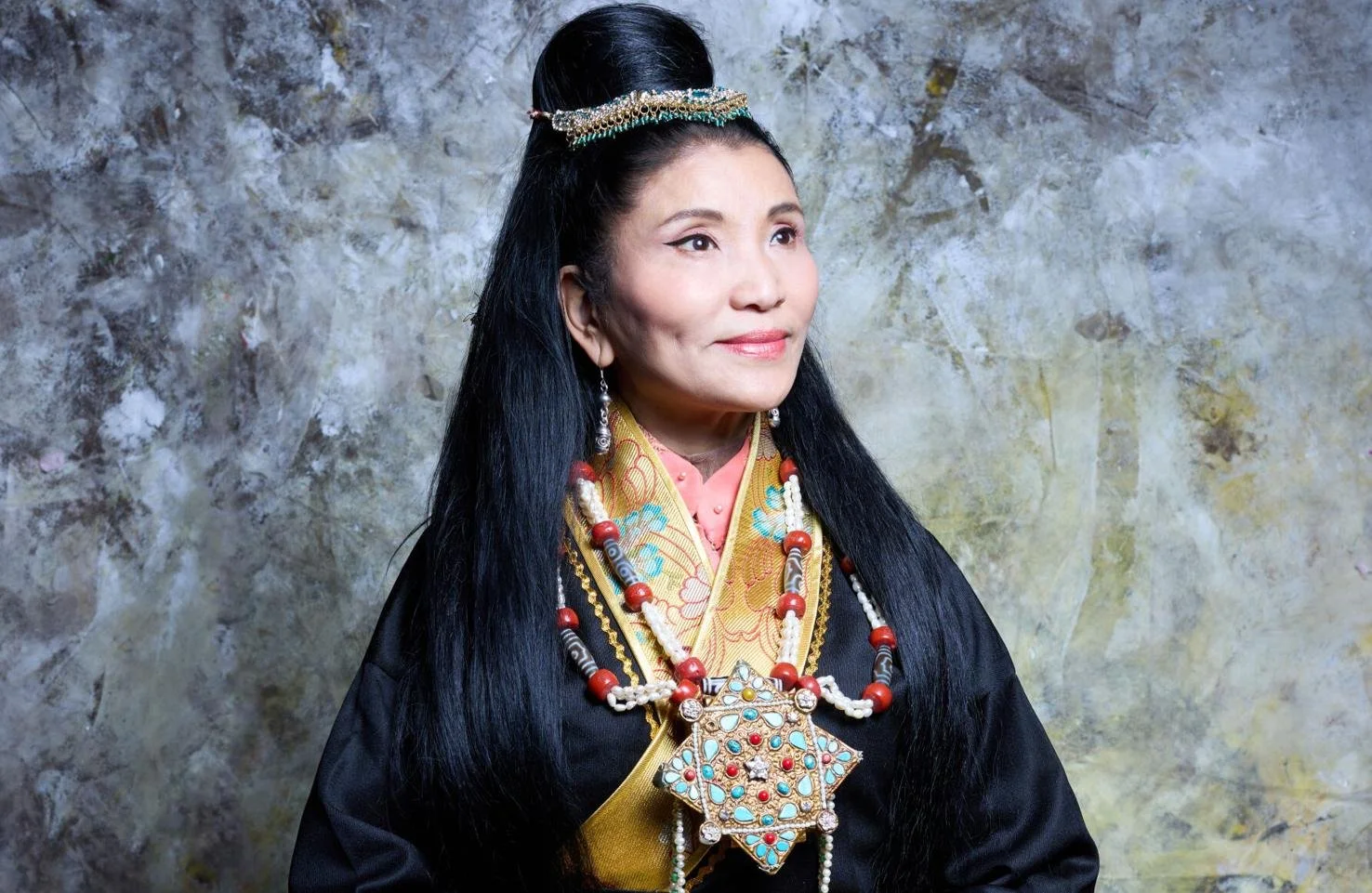Tibetan singer-songwriter Yungchen Lhamo makes musical mantras as an offering of peace
U.S.-based artist draws on everything from thousand-year-old chants to brass bell vibrations and stirring North African beats
Yungchen Lhamo
The Blueshore Financial Centre for the Performing Arts presents Yungchen Lhamo on Thursday, January 25
“SEND NOT TO KNOW
For whom the bell tolls,
It tolls for thee.”
It’s a stretch, I know, to make a connection between a 17th-century metaphysical poet from London and a 21st-century mystic from Tibet, but John Donne’s most famous epigram seems oddly apposite when listening to Yungchen Lhamo’s new recording, One Drop of Kindness. The bell that introduces Lhamo’s opening track, “Sound Healing”, has the Pavlovian effect of focusing our attention on what follows: a seven-part musical mantra that offers a message of peace and healing for the world.
Lhamo’s bell tolls for us, but also for all sentient beings, as Tibetan Buddhists like to say.
Make no mistake, however: the Tibetan artist’s record is not a New Age collection of pretty platitudes set to a tinkling backdrop. In fact “Sound Healing”, despite its generic title, is a fine example of her reach. Once its ringing brass subsides, a didgeridoo drone ushers in a resonator guitar, playing a Ry Cooder–inspired line that hovers somewhere between the Mississippi and Ganges deltas. This in turn segues into a stirring North African beat, over which Lhamo first chants, then sings, a mysterious sequence of words: “Tayatha om bekandze bekandze maha bekandze radza samudgate soha.”
A little digging reveals this to be Buddha Bhaisayaguru’s recipe for eliminating suffering; by chanting it, followers of the Medicine Buddha believe, pain and mental illness can be washed away in an “ocean of goodness”.
As a materialist and cynic, I can’t speak to the long-term efficacy of this action, but I’ll testify that listening to Lhamo certainly brings some uplifting energy into my world. And as a materialist, I’ll agree with the Buddhists that sound is vibration, and vibration can have both positive and negative effects on the brain and body.
This, for Lhamo, is the intent of all her music-making.
“For me, I don’t make a ‘CD’ CD,” she explains in heavily accented English from Nevada City, California, where she’s convening with her producer and accompanist, John Alevizakis. “For me, it’s meaning I make. And so for me it’s really an offering. Every CD I make, every music or prayer I make, I make different because the time is different.”
The traditional chant that she draws on in “Sound Healing”, she explains, is an everyday part of Tibetan self-care. “People are ill, and there are no hospitals, so people do these mantras or prayers. These are thousand, thousand-year-old prayers, and people not only say mantras like ‘Wish I am healthy; wish I am healed.’ People do these to heal the world and heal all sentient beings. It’ s a long process, and of course if you are doing this you need to visualize it, not only say it. And if you say it, then you act on it. If you’re praying that all sentient beings should be healed, then you don’t hurt other people. Even in your head you don’t think ‘I want to hurt somebody.’ And then we have all these human attachments: jealousy, anger, hate. So we cleanse ourselves when we say these mantras.
“When you say good words or ugly words, the energy is different,” she continues. “And I believe that people feel what I am singing; it is more or less what I feel, and what I am doing.”
Only six million people worldwide speak Tibetan, but Lhamo has no difficulty getting her feelings across on One Drop of Kindness. Whether tapping into the autonomous sensory meridian response with the shivery, whispery opening of “Awakening through Sounds” or intoning the anthemic “Dream Song” over breathy flutes and a driving, repetitious oud, she has the gift of communication—something that also serves her well in her off-stage activities.
One Drop of Kindness is named for Lhamo’s 20-year-old charity, which funds health care and education for Tibetan refugees displaced by the ongoing Chinese occupation of her native land. (The singer herself was one of them, having escaped Tibet on foot, in winter, through treacherous Himalayan mountain passes.) More recently, she has been working with marginalized people in her adopted home of Kingston, New York, singing with and sitting with the homeless, the addicted, and the mentally ill, offering them “sound healing” and the emotional warmth of what can only be described as unconditional love.
Performing and outreach work are essentially the same, Lhamo believes.
“They’re related,” she says. “They’re each other. People say ‘You know, Yungchen, this is dangerous. Don’t go. This is not the right thing to do.’ But for me, if they need me I’ll go there. I don’t know if they are mentally ill; I just know they are me, and we are them.”
And so when Lhamo—accompanied by Alevizakis and local musicians Shine Edgar and Curtis Andrews on didgeridoo and percussion, respectively—comes to the Blueshore Financial Centre for the Performing Arts on Thursday (January 25), she’ll offer a similar level of care and attention.
“At the concert, people are singing with me together, using their own voice, their own energy,” she notes. “And then people are dancing, and people meditate a little bit there.
“My bigger dream for this world,” she continues, “is for peace, and that everybody awakens and heals. We all go through a different journey, but my dream is that we all come together, because we all need the same. That’s my wish.”














